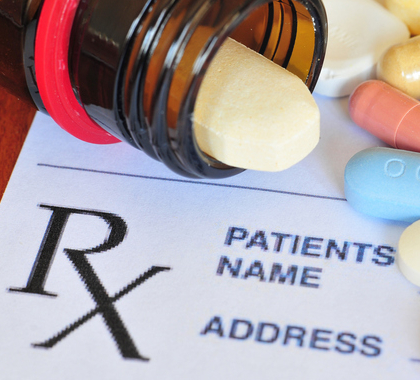In a meeting with pharmaceutical executives Tuesday, President Donald Trump said he wants the person he appoints to head the Food and Drug Administration (FDA) to facilitate faster approval of live-saving drugs, especially for patients with terminal illnesses.
“You’re going to get your products approved or not approved, but it’s going to be a quick process,” Trump said with reporters present before the closed-door meeting. “It’s not going to take 15 years. [I’m] surprised you can’t get them to move faster.”
The following statements from health care policy experts at The Heartland Institute – a free-market think tank – may be used for attribution. For more comments, refer to the contact information below. To book a Heartland guest on your program, please contact New Media Specialist Billy Aouste at [email protected] and 312/377-4000 or (cell) 847/877-9100.
“President Trump’s frustration with FDA’s laborious approval process for new drugs resonates with millions of Americans eager for more freedom and less government in health care. Trump’s promise to ‘get approvals much faster’ and ‘change a lot of rules’ shows he recognizes FDA’s nonsensical obstruction of terminally ill patients wanting to try potentially life-saving experimental drugs.
“Action by the federal government is crucial to ensuring the effectiveness of state initiatives to reduce FDA’s regulatory footprint – such as the right-to-try movement, which has prompted more than 30 states to try to defend the rights of terminally ill patients.”
Michael Hamilton
Research Fellow, Health Care Policy
The Heartland Institute
Managing Editor, Health Care News
[email protected]
312/377-4000
“The FDA’s burdensome rules, regulations, and lengthy approval process have driven up the cost of drugs in the United States for decades. The Trump administration’s commitment to cutting the existing costly and sometimes deadly red tape is a vital and most welcome first step toward reducing skyrocketing pharmaceutical prices.”
Justin Haskins
Executive Editor
The Heartland Institute
[email protected]
312/377-4000
“It is appalling that in the U.S., many declare a ‘right to die,’ but there is so much resistance to a “right to try.” And why should you have to be terminally ill to obtain a drug that could help with a seriously debilitating condition? FDA claims the policies it has in place are to protect patients. Yet many dangerous drugs are approved, only to be later withdrawn, while safer drugs languish for decades or never come to market.
“Costly nit-picking and counterproductive regulations also contribute to dangerous shortages of standard drugs. Instead of focusing on the process – and the paperwork – FDA should be testing the product for sterility, contamination, or inaccurate dosing. This should also be applied to imported drugs – some of which reportedly come from places like China, where the FDA simply accepts a foreign government’s word for safety.”
Jane M. Orient, M.D.
Executive Director
Association of American Physicians and Surgeons
[email protected]
312/377-4000
“There are reasonable exceptions to the excessive safety zeal of the FDA. Some drugs found to be efficacious are still not released because of the onerous processes demanded by the FDA and should go into a special category if they are important for amelioration or control of deadly diseases. They could be released as a special category of drug with benefits that hasn’t been completed vetted for potential harms, and the patient given the information and allowed an opportunity to take the risk of the unknown. That’s the humane thing to do for people with a deadly problem that appears to be responsive to a therapy not completely cleared.”
John Dale Dunn, M.D., J.D.
Policy Advisor, Health Care
The Heartland Institute
[email protected]
312/377-4000
“Donald Trump wants to lower drug prices while maintaining innovation. He also wants the FDA to approve new drugs faster. However, the soaring drug prices come directly from the soaring development costs, which grow every year as the FDA demands more and more studies.
“The average drug costs $2.5 billion to bring to market and spends about 12 years meeting the requirements. The FDA then takes roughly a year to review these studies before granting or denying an approval. The only way to lower drug prices without stifling innovation is to lower the 12 years of regulatory requirements, most of which do little to provide more safety or effectiveness. Trimming the FDA’s review time will help, but not enough to lower drug prices without stifling innovation.
“Regulations have side effects, just as drugs do. More regulations mean that the product subject to them will cost more. Money spent on regulatory red tape decreases the amount that can be spent on innovation. We all lose when that happens. Whether we are regulators, pharmaceutical executives, doctors, or patients, about 90 percent of us will die from disease. When innovations languish on the laboratory shelf because they are too pricey to bring to market or end up floundering in regulatory red tape, lives are lost. The next one could be yours – or that of a loved one.”
Mary J. Ruwart
Research Scientist
Policy Advisor, The Heartland Institute
[email protected]
312/377-4000








